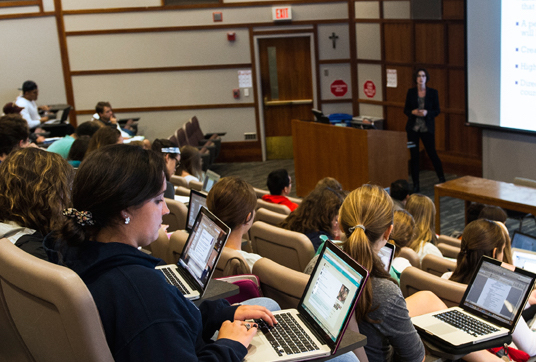
Proposed landfill poses threat to Quabbin Reservoir
The Quabbin Reservoir, the main drinking water sources for the City of Boston and for 2.5 million people in 40 cities and towns across Massachusetts, is under threat.
Quabbin is at risk of toxic pollution by a landfill proposed for Hardwick, a small town in central Massachusetts.
Holding roughly 400 billion gallons of drinking water, Quabbin is an environmental and economic treasure. It protects Massachusetts residents against deadly waterborne diseases such as cholera and typhoid that periodically ravaged the state before Quabbin’s construction. It protects us against the toxic chemicals that contaminate drinking water across much of the United States.
Assessing the Human Health Benefits of Climate Mitigation, Pollution Prevention, and Biodiversity Preservation
Since the Industrial Revolution, humanity has amassed great wealth and achieved unprecedented material prosperity. These advances have come, however, at great cost to the planet. They are guided by an economic model that focuses almost exclusively on short-term gain, while ignoring natural capital and human capital. They have relied on the combustion of vast quantities of fossil fuels, massive consumption of the earth’s resources, and production and environmental release of enormous quantities of chemicals, pesticides, fertilizers, and plastics. They have caused climate change, pollution, and biodiversity loss, the “Triple Planetary Crisis”. They are responsible for more than 9 million premature deaths per year and for widespread disease – impacts that fall disproportionately upon the poor and the vulnerable.

Fixing the T Will Improve Public Health
$24.5 billion is a lot of money, but the costs to public health of doing little or nothing are far greater
WHILE THE MBTA’S announcement that it will need at least $24.5 billion to repair stations, trains, tracks, and signals drew criticism and some measure of disbelief at the magnitude of the estimated cost, the price tag is just one side of a larger cost-benefit equation Massachusetts residents must consider.
Simply put: Improving public transit will improve public health.
In the Bay State, cars, trucks, and buses are responsible for 70 percent of the 28.8 million tons of pollutants released into the air each year. One of the quickest ways to reduce pollution, take cars off the road, and improve air quality is to make public transportation reliable, affordable, and safe.
The Burden of Cardiovascular Disease from Air Pollution in Rwanda
Rwanda, like many countries in sub-Saharan Africa, is still relatively early in development. Industrialization and urbanization are major drivers of the county’s economic growth. Rwanda is also undergoing an epidemiological transition, from a pattern of morbidity and mortality dominated by infectious diseases to a pattern shaped by non-communicable diseases (NCDs). The rise in NCDs is due, in part, to increasing exposures to environmental hazards. These include emissions from the growing number of motor vehicles and toxic occupational exposures. Cardiovascular disease (CVD) is now an increasingly important cause of death in Rwanda, and ambient air pollution is a CVD risk factor of growing importance.
Plastics, Fossil Carbon, and the Heart
Plastics have enabled extraordinary advances in virtually every area of medicine and have made our lives immeasurably more convenient. Multi ple lines of evidence now indicate, however, that plastics are neither as safe nor as inexpensive as they seem. The benefits of plastics come at great and increasingly visible costs to human health and the environment.
Plastics are manufactured chemical materi als. Fossil fuels — gas, oil, and coal — are the main feedstocks of plastics, and fossil carbon corporations such as ExxonMobil are their prin cipal producers. Plastics comprise a polymer matrix plus thousands of chemical additives that impart such properties as color, stability, flexibil ity, flame resistance, and water repellency. Many additives are toxic; these include carcinogens, neurotoxicants, and endocrine disruptors such as bisphenols and perfluorinated and polyfluori nated substances that can disrupt lipid metabo lism and increase the risk of diabetes, cardiovas cular disease, and stroke.

Connell School lecture to air on C-SPAN
Connell School of Nursing Assistant Professor Lindsey Camp's lecture on the history of public health will air on C-SPAN2 Lectures in History on February 10 at 8 a.m., 11:50 a.m., 8 p.m. and 11:50 p.m. It will also be available after the broadcast online and as a podcast.
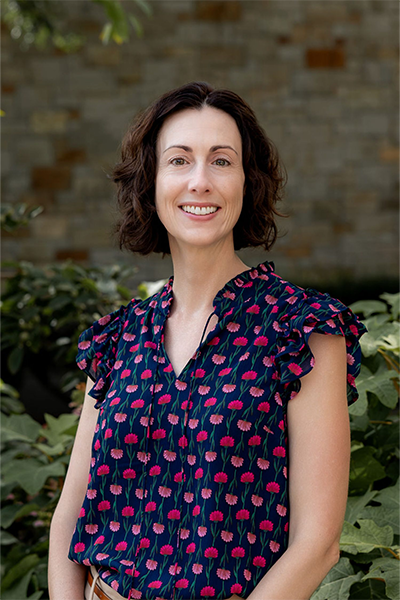
Inaugural associate director named for BC Global Public Health program
Boston College School of Social Work Professor Summer Sherburne Hawkins, a social epidemiologist whose research interests include health disparities among women and children, has been appointed as the inaugural associate director of BC’s Global Public Health and the Common Good interdisciplinary undergraduate program.
Hawkins will assume the post in January.
“I am excited to join Global Public Health and the Common Good in a leadership role,” said Hawkins, whose association with the program goes back to its predecessor, a three-course sequence in public health introduced in 2014 by faculty in BCSSW, the Connell School of Nursing, and the Lynch School of Education and Human Development. “One of the hallmarks of the program is its cross-disciplinary focus, offering faculty and students the opportunity to explore some of our most critical issues today from many perspectives. Social policy is health policy, and public health is the bridge that bring these areas together.”
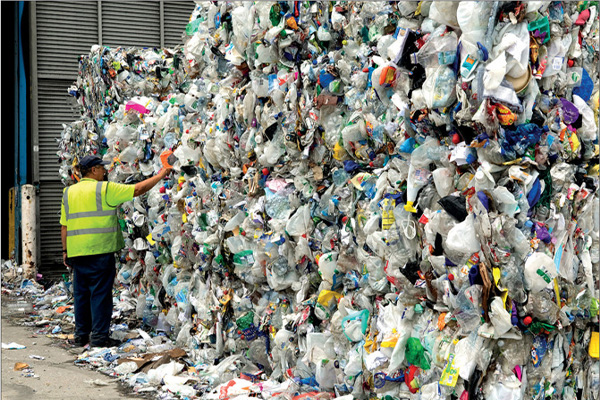
The global plastics treaty: why is it needed?
On March 2, 2022, the UN Environment Assembly adopted a historic resolution to develop a global plastics treaty. The goal is to reduce plastic pollution, including ocean pollution and microplastics, across the entire plastic life-cycle. Treaty negotiations are on a fast track. An intergovernmental negotiating committee has met twice. A third meeting is scheduled for November, 2023, in Nairobi, Kenya. The intent is to draft the treaty by the end of 2024.
Plastic pollution is a global threat. It has grown insidiously while the focus has been on climate. Because plastic is persistent and less than 10% is recycled, nearly 6 billion tonnes now pollute the planet. This waste contains more than 10 500 chemicals incorporated into plastic, including carcinogens, neurotoxicants, endocrine disruptors, and many others of unknown toxicity.These chemicals leach out from plastic and plastic waste. In the USA alone, they are responsible for more than 85 000 premature deaths each year, 1·5 million cases of cardiovascular disease, and health-related costs of US$675 billion.

Fine Particles Kill Thousands of Texans a Year. It’s Likely to Get Worse.
This report, published by Dr. Philip Landrigan and Luke Bryan (BC '21) presents a comprehensive analysis of morbidity and mortality attributable to fine particulate matter (PM2.5) throughout the state of Texas. Using NASA satellite data, census-tract-level estimates of PM2.5 pollution were established and linked to population health outcomes in the U.S. Environmental Protection Agency's BEN-MAP software, which is used to predict the health impacts and economic value of changes in air quality. It was estimated that there were 8,405 premature deaths due to PM2.5 in Texas during the year 2016. Additionally, statewide increases in air pollution-related morbidity and mortality were seen for stroke, low birthweight, non-fatal lung cancers, new onset Alzheimer's disease, and new onset asthma. This alarming finding demonstrates that air pollution poses significant risks to the health of Texans, despite its compliance with the Environmental Protection Agency's standard for PM2.5 pollution.

Global Health Equity and Healthcare Delivery: A South African Context
This summer Professor Brittney van de Water offered a course titled Global Health Equity and Healthcare Delivery: A South African Context. Students who enrolled in this course traveled to South Africa this past summer, where they spent time immersing themselves in the pages of global health textbooks, journal articles about HIV and TB, and memoirs of the unfolding HIV/AIDS epidemic. In addition, students met with community activists, nurses, doctors, and humans of diverse walks of life on the frontlines of the epidemic that ravaged not only South Africa but the majority of southern Africa in the 1980s through 2000s. The course highlighted some very stark disparities and inequities across urban and rural landscapes, across regions, and within disadvantaged city limits, shining a new light on the profound importance of zip code on health.
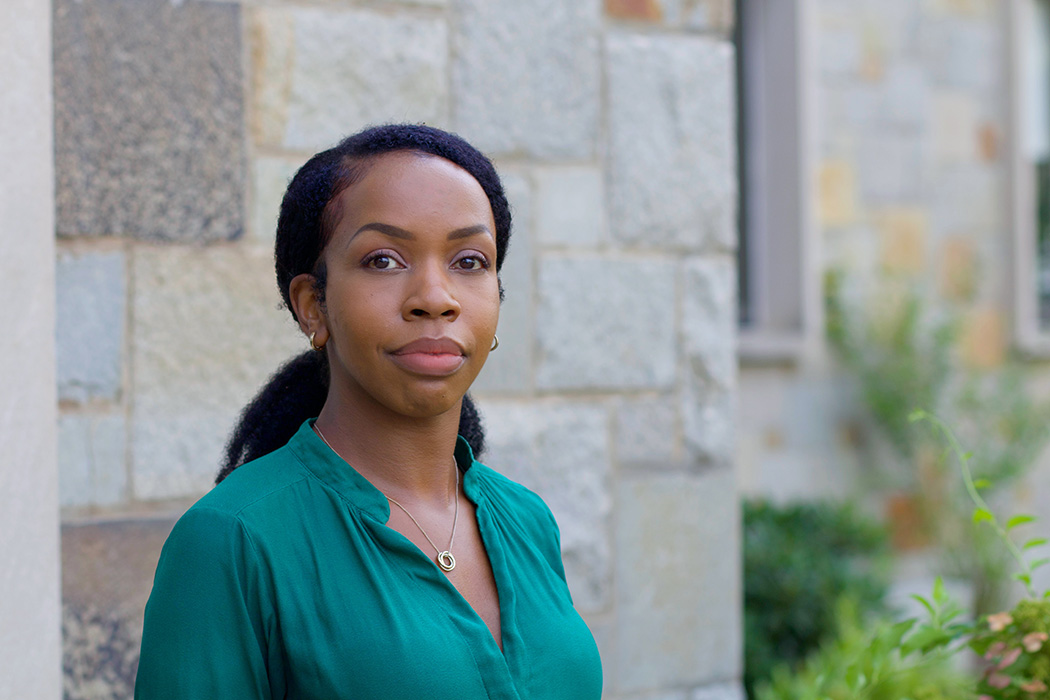
BCSSW researcher receives $2.5M grant from the National Institute of Allergy and Infectious Diseases
Whitney Irie, an assistant professor in the Boston College School of Social Work, has received a five-year, $2.5 million grant from the National Institute of Allergy and Infectious Diseases to develop a research tool to assess the equitability of public health programs.
Irie’s project is specifically funded by a Director’s Pioneer Award from the National Institutes of Health, a highly-selective honor that supports exceptionally creative scientists who are pursuing novel ideas outside their current research program. The award, established in 2004, supports outside-the-box thinkers pioneering new approaches to major challenges in biomedical, social science, and behavioral research. Whitney Irie will use the funding to develop a research tool to assess the equitability of public health programs.

Keynote Presentation at PEHSU 25th Anniversary
On September 27th at the Center for Disease Control and Prevention in Atlanta, Dr. Philip Landrigan, Director of the Boston College Program for Global Public Health and the Common Good, was the keynote speaker at the 25th anniversary meeting of the Pediatric Environmental Health Speciality Units (PEHSUs).
The PEHSUs are a national network of frontline centers in environmental pediatrics that treat children with diseases of environmental origin and serve as a source of referral for practicing pediatricians. Over the 25 years of their existence, the PEHSUs have seen, diagnosed and treated tens of thousands of children with toxic environmental exposures. Dr. Landrigan was asked to speak on the past, present and future of the PEHSU network. In 1998, he was one of the network’s founders.
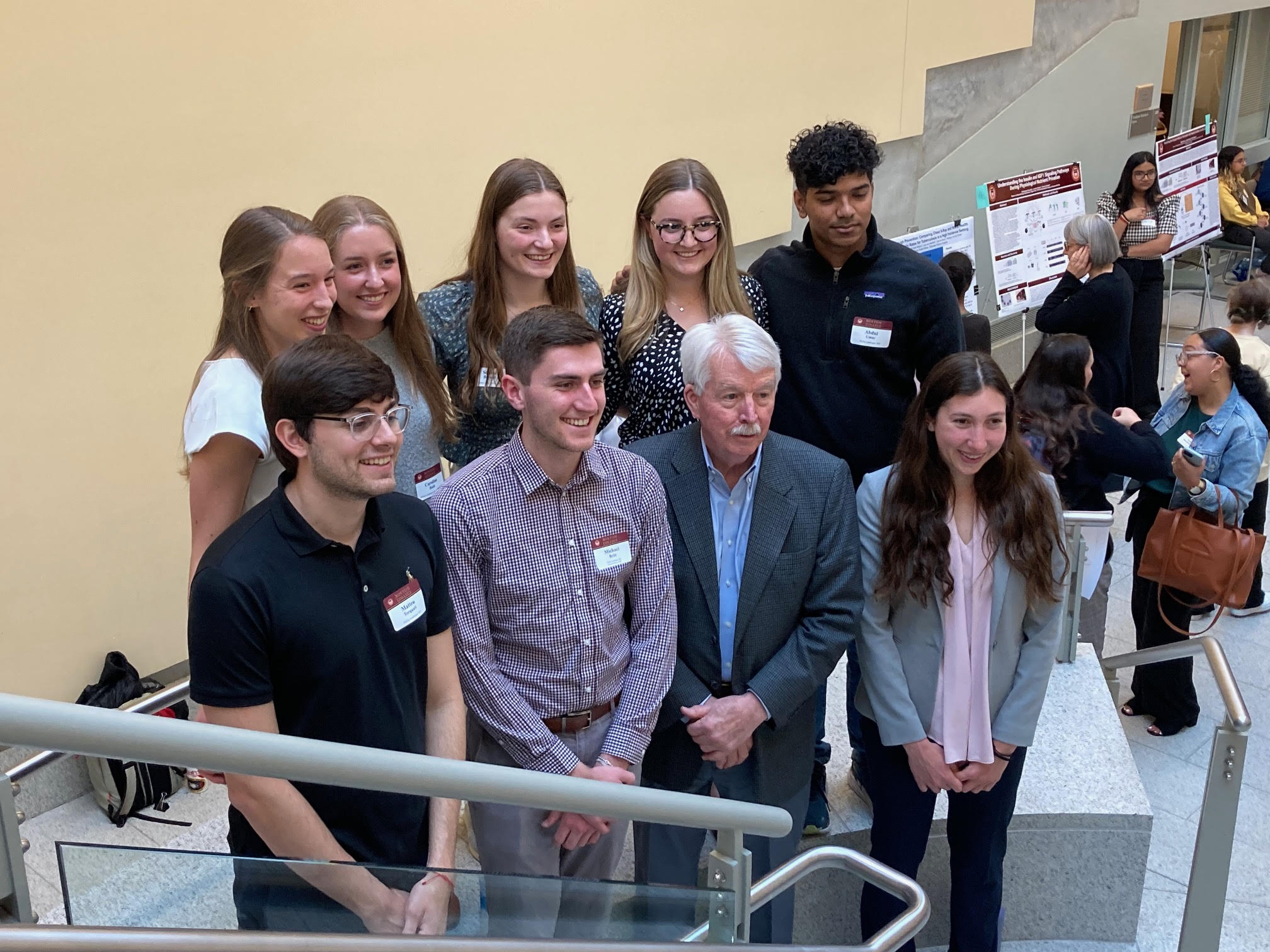
Hamilton Research Symposium
Congratulations to those who participated in the Hamilton Research Symposium! We were thrilled to have the opportunity to highlight and celebrate your great work.

Congratulations to Our Graduates!
A warm congratulations to our graduates from the class of 2023! This year, 44 students graduated from Boston College with degrees from the Program for Global Public Health and the Common Good. They included 5 students who graduated from the independent major in Global Public Health, and 39 who graduated from the minor. This was a truly outstanding cohort who have received multiple honors, awards and prestigious scholarships.
Minderoo-Monaco Commission on Plastics and Human Health
The Minderoo-Monaco Commission on Plastics and Human Health evaluates the impact of plastic across its life cycle, from production to disposal, and is the first report to do so. The report looks at the problem of plastics from multiple lenses, focusing on human health, ocean health, economics, and social justice. The Commission urges global leaders to develop and implement a strong, comprehensive, and legally binding Global Plastics Treaty, to protect human health and preserve our Common Home. Learn more here >>
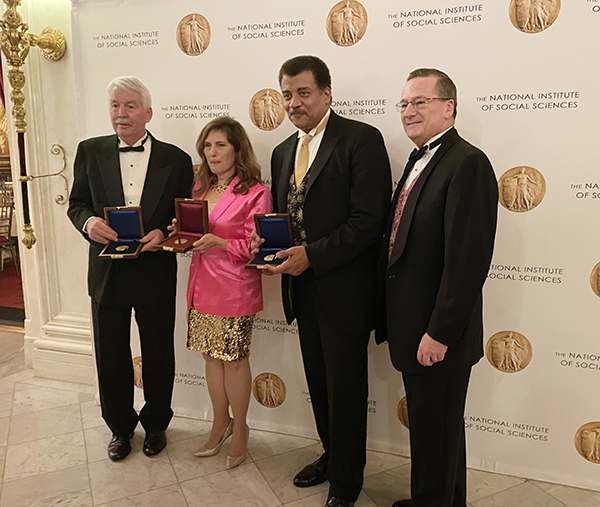
National Institute of Social Sciences honors Professor Philip J. Landrigan, M.D., '63, director of BC's Global Public Health program and Global Observatory on Planetary Health
For his work to improve public health in the United States and around the world, Professor of Biology Philip J. Landrigan, M.D., founding director of the Program for Global Public Health and the Common Good, will receive the Gold Honor Medal from the National Institute of Social Sciences on December 6. Learn More >>
International Editorial Regarding Climate Justice in Africa
Just before COP 27, over 250 health journals across the world came together to simultaneously publish an editorial to encourage world leaders to deliver climate justice for Africa. Over 130 publications from around the world reported on the editorial, amplifying its reach to an estimated 800 million people. Social media shares were also strong, with a potential reach of almost 300 million. A key finding of this project is that climate change is a concern in all areas of health as demonstrated by the wide variety of health professionals supporting the project.
The full list of authors and signatories to the climate emergency editorial can be found here.
BC will offer major in Global Public Health and the Common Good
Boston College will offer a new major in Global Public Health and the Common Good, adding to a popular program that counts more than 100 students enrolled in its minor or pursuing the degree independently. Learn More>>
Senior Ella Whitman Presents at American Public Health Association Annual Conference
This year, the American Public Health Association hosted their annual conference in Boston from November 6th to the 9th, 2023. Ella Whitman, a Senior in the Global Public Health and the Common Good program presented an abstract at the conference titled “The Effects of Endocrine Disrupting Chemicals in Plastic on Children’s Health.” In this abstract, Ella conducts a “literature review of the effects of endocrine-disrupting chemicals (EDCs) in plastic on children’s health.” Plastics like these mimic human hormones and can have a significant impact on vital organs in the human body.
In its 150th year, the APHA centered their conference on leading the path towards equity in the public health space. While there have been important advances in science and policy facilitated by or directly the result of work conducted by APHA members, there remains significant health disparities in the United States. Through the conference, the APHA sought to acknowledge the impact of racism and bias in the United States in its overall mission to “achieving the healthiest nation in a generation.”
Dr. Landrigan and Professor Wirth Present at COP27 Egypt
Dr. Philip J. Landrigan, Director of the Global Public Health Program and Global Observatory on Planetary Health at Boston College, presented with Professor David Wirth of the Boston College Law School at COP27 Egypt on Monday, November 14th. They participated in a panel centered on “Ocean Microplastic Pollution: Links to Climate, Ecological Impacts, and Human Health Risks” as part of the Virtual Ocean Pavilion at the conference. In their remarks, they discussed the “social cost of plastic pollution,” the current state of research around plastic in the ocean and the potential impacts of these plastics on human and environmental health.
Building on the outcomes of COP26, COP27 Egypt was convened to “deliver action on an array of issues critical to tackling the climate emergency,” including reducing greenhouse gas emissions, “building resilience, and adapting to the inevitable impacts of climate change” with a particular focus on delivering on commitments to foster climate action in developing nations.
Safeguarding children's health in a changing global environment
Children are exquisitely vulnerable to environmental hazards.1 This sensitivity reflects children's unique exposures, their immaturity, and the great complexity of early human development. Exposures during prenatal windows of susceptibility can increase risk for disease in childhood and impair health across the lifespan. WHO estimates that one death in four among children worldwide could be averted by reducing hazardous environmental exposures. Read more>>
Announcing the Minderoo – Monaco Commission on Plastics and Human Health
The Minderoo – Monaco Commission on Plastics and Human Health will present a comprehensive analysis of the hazards that plastic poses to human health and well-being at every stage of its life cycle. It will offer science-based recommendations designed to prevent plastic-related disease, disability, and premature death and to contain plastic’s externalized economic costs. It will envision a future in which essential uses of plastic are preserved, but the trivial and wasteful consumption of single-use and short-lived plastics is no more. It will point the way to a more circular global economy in which indestructible, environmentally persistent, and toxic plastics are replaced by safer, more sustainable alternatives. Read more>>
Air pollution is responsible for premature deaths in every Massachusetts city and town
We recently published a study in the journal Environmental Health estimating air pollution’s health effects in every Massachusetts city and town, information we have placed in a searchable database. Learn more>>
Boston College’s Global Observatory on Planetary Health is first to reveal town-by-town pollution levels and health impacts, including 2,780 deaths in 2019
Air pollution remains a silent killer in Massachusetts, responsible for an estimated 2,780 deaths a year and for measurable cognitive loss in Bay State children exposed to fine particulate pollutants in the air they breathe, according to a new study by researchers at Boston College’s Global Observatory on Planetary Health (formerly the BC Observatory on Pollution and Health). Learn more
Study: Air pollution causes 2,780 deaths per year in Mass.
BOSTON - Air Pollution kills 2,780 people each year in Massachusetts, according to a new study released Sunday night.The Boston College study also found that pollution is impacting the cognitive function of children across the state. Researchers estimated fetal and early life exposure are responsible for 2 IQ points per child. Learn More
Study finds 2,800 Massachusetts deaths in 2019 connected to air pollution
In Massachusetts, no community — from the Berkshires to Boston — is spared the lethal consequences of air pollution, according to a new study from researchers at Boston College.
The researchers estimated that about 2,800 people in Massachusetts died of conditions attributable to air pollution in 2019, and in a first-of-its-kind analysis, they broke down that number for each of the state’s 351 cities and towns. Their findings are available in a searchable public map.. Learn More
Pollution’s deadly toll continues unabated
Pollution continues to kill approximately 9 million people around the world on an annual basis, according to a follow-up study to a landmark 2018 report by The Lancet Commission on Pollution and Health, a global research initiative that includes Professor of Biology Philip J. Landrigan, M.D., and DeLuca Endowed Professor in Biology and Vice Provost Thomas Chiles among its members. Read more >>
BC to Partner on Study of Hazards from Plastics
The Global Observancy on Pollution and Health at Boston College and an international team of researchers are launching a study of the hazards plastic products pose to global human health across the continuum of thier production, use, and disposal... Read more >>
Fauci says US is out of the ‘full-blown’ pandemic phase. But experts warn the virus still poses a threat.
As Dr. Anthony Fauci, the nation’s top infectious disease expert, declared that the United States is “out of the full-blown, explosive pandemic phase,” some public health experts cautioned Wednesday that the unpredictable virus that causes COVID-19 still poses a threat. Read more >>
U.S. life expectancy continued to drop in 2021, new analysis shows
Life expectancy in the United States, which declined dramatically in 2020 as the coronavirus slammed into the country, continued to go down in 2021, according to a new analysis that shows the United States faring worse during the pandemic than 19 other wealthy countries — and failing to see a life expectancy rebound despite the arrival of effective vaccines. Read more >>
There’s good reason to worry about the health risks of plastics
Some findings suggest tiny plastic particles could disrupt immune and endocrine systems, damage organs, and cause other health problems. Read more >>
Artificial sweeteners linked with a 13% higher risk of cancer
A large new observational study has found an association between the consumption of artificial sweeteners, particularly aspartame and acesulfame-K, and cancer.The study found a 13% higher risk of cancer in general, with the highest likelihood of developing breast cancer and cancers related to obesity, for people consuming large quantities of artificial sweeteners. Read more >>
Air Quality and Brain Health
In 2020, a panel of international experts added exposure to air pollution late in life to a list of modifiable risk factors for dementia. Although exposure to nitrogen dioxide and fine particulate matter (PM2.5) has been associated with increased risk of dementia, an important question remains: Can air pollution also influence cognitive decline? Read more >>
Lessons learned at COP26
Boston College attendees at the U.N. Climate Change Conference reflect on takeaways and the road from here.
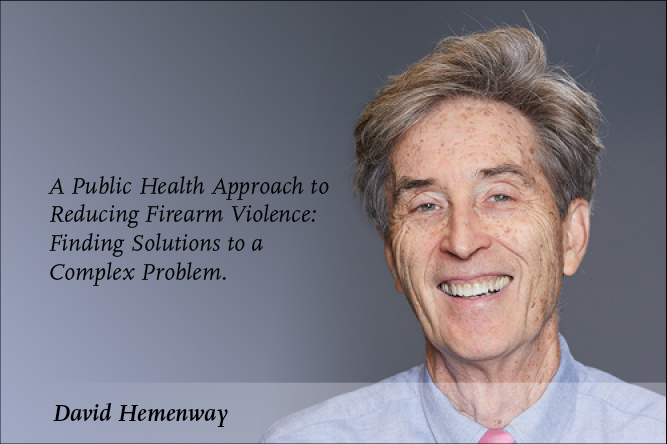
A Public Health Approach to Reducing Firearm Violence: Finding Solutions to a Complex Problem
David Hemenway, Ph.D., an economist and Professor at the Harvard T.H. Chan School of Public Health (HSPH) and a former James Marsh Visiting Professor at the University of Vermont will be giving a lecture as part of the Park Street Series on a public health approach to reducing firearm violence. Register here
Cancer in Firefighters
Philip Landrigan, M.D. testified before the Labor and Public Employees Committee in the Connecticut State Senate on SB141 an Act Concerning Workers' Compensation Coverage for Current and Former Members of Paid Municipal or Volunteer Fire Departments. Read the Testimony
Trump’s environmental and occupational policies are the other public health disasters
In an article in the Boston Globe, Philip J. Landrigan and Samantha Fisher outline what challenges President Biden faces in undoing the damage done by the Trump administration’s rollback of regulations. Read More
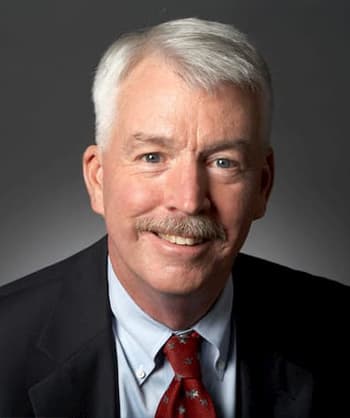
COVID-19 and Clean Air: An Opportunity for Radical Change
COVID-19 has brought the world to a point of crisis. We have a once-in-a-generation opportunity to emerge and build a cleaner, healthier, and a more just world, writes Philip Landrigan, M.D., professor of biology and director of BC's Global Public Health Program, co-author of an essay published in The Lancet Planetary Health >>
The President's Diagnosis
Professor of Biology Philip Landrigan, director of BC's Global Public Health and the Common Good program, is among epidemiologists asked to weigh in on the president contracting COVID-19: Boston Globe

When Being Tired Is Actually Depression
There's a complex relationship between fatigue and mental health. When is lethargy something more? Insights from Lynch School Buehler Family Sesquicentennial Assistant Professor Betty Lai, who studies how children and families respond to trauma: Huffington Post
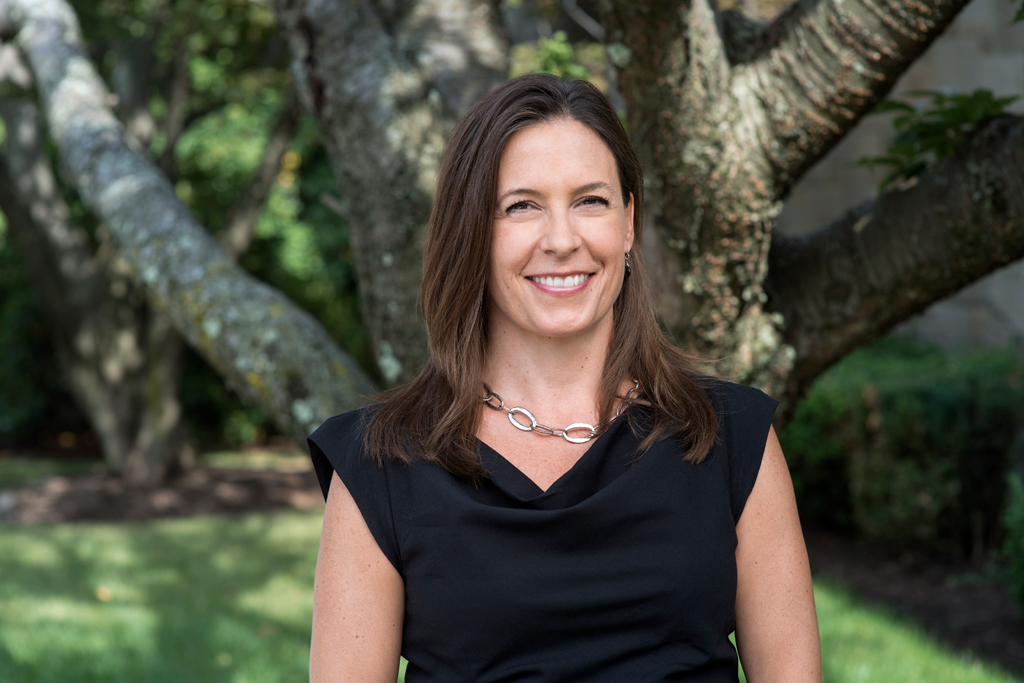
Improving Lives
Honored for improving lives. School of Social Work researcher Theresa Betancourt is recognized for her work on behalf of children and families in Rwanda, Sierra Leone, and the U.S.
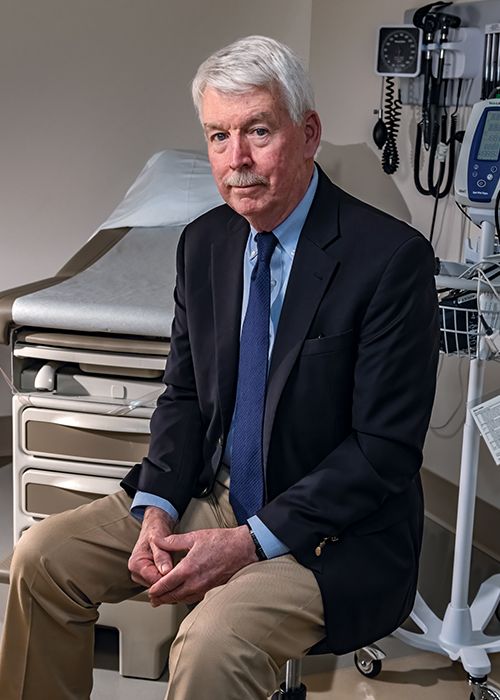
Landrigan Offers Guidance in the Face of COVID-19
Philip Landrigan's lifelong focus on public health has given him the tools to be a beacon of rationality for his students. The Heights | Magazine
%201070.jpg)
Abuelezam Stays Transparent in the Face of a Pandemic.
Nadia Abuelezam, a public health professor at BC, translates details surrounding the pandemic and communicates with the student body and beyond. The Heights | Magazine
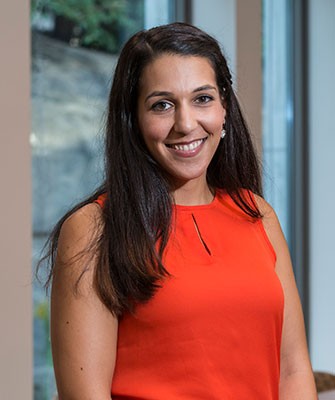
How do businesses (and customers) decide what’s safe during a pandemic?
What are the some of the safety considerations for businesses (and their customers) and public schools during a pandemic? Insights from Connell School of Nursing Assistant Professor Nadia Abuelezam: Marketplace | WBUR News
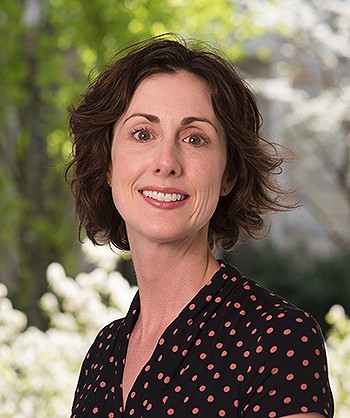
Spotlight - A message on this International Women's Day
BC School of Social Work Associate Professor Summer Sherburne Hawkins draws attention to the public health concerns surrounding periods this international women's day. Read More
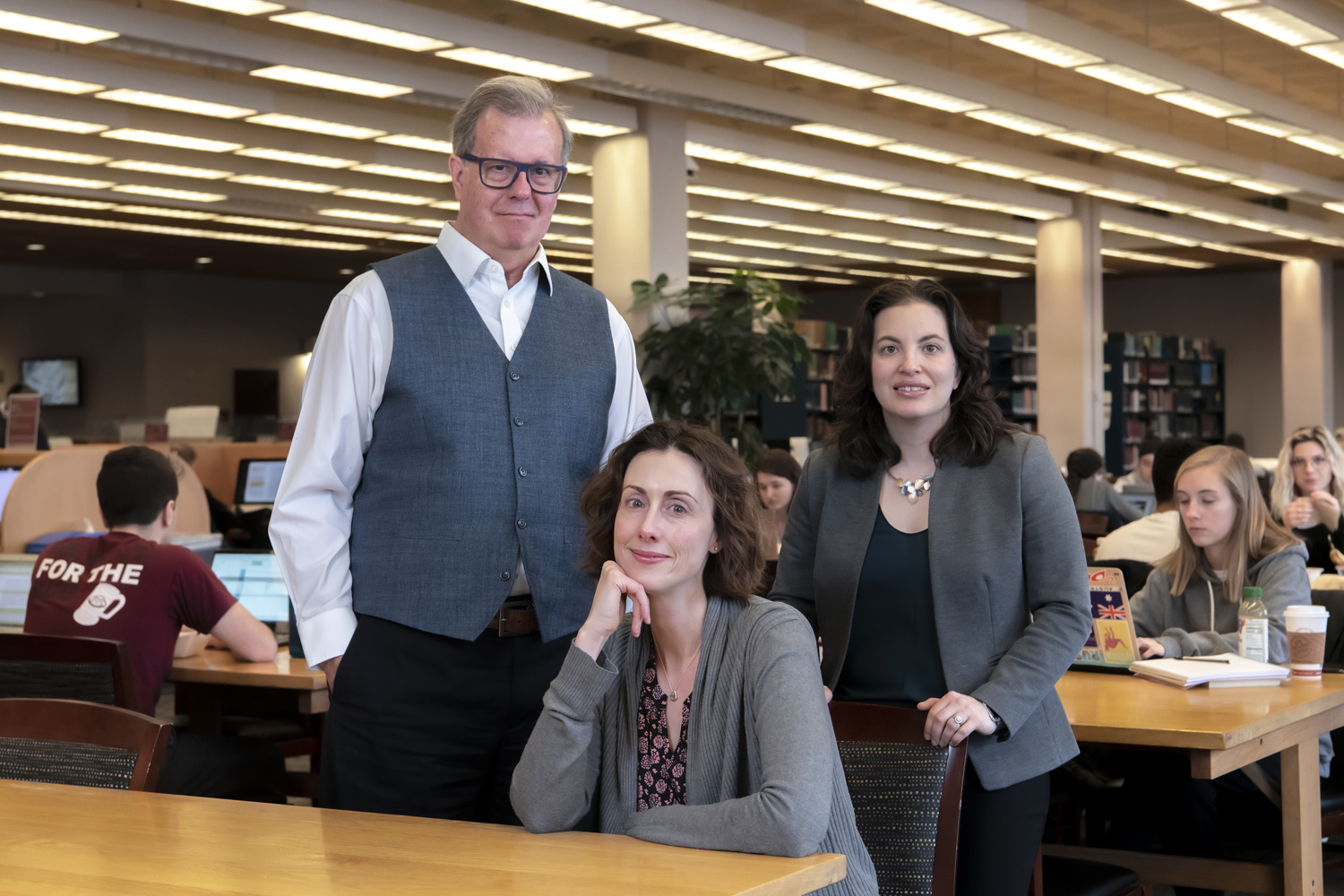
Study Shows Link in Gun Policies, Rate of Workplace Homicides
States that toughened their firearms policies overall saw declines in the rate of workplace homicides, according to BC researchers who looked at gun law changes during a six-year period. BC School of Social Work Assistant Professor Erika Sabbath led the study, conducted with BCSSW Associate Professor Summer Sherburne Hawkins and Professor of Economics Christopher F. Baum. BC News
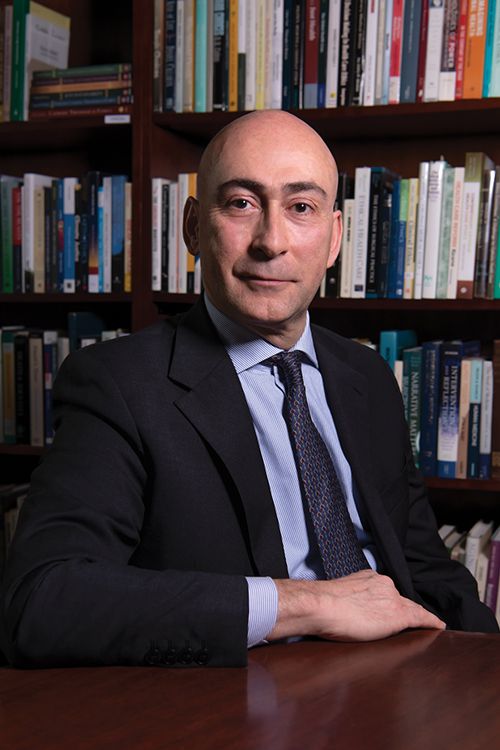
Spotlight - The Ongoing Pandemic: An Urgent Call to Global Solidarity
BC Professor of Moral Theology, Andrea Vicini highlights the importance of empathy during a time of vulnerability. Read More
%20sq.jpg)
Spotlight - Bias in Public Health
Nadia Abuelezam, Assistant Professor, Connell School of Nursing draws attention to the critical issue of human bias in public health. Read More

Spotlight - Coronavirus
Erika Sabbath, Assistant Professor of the School of Social Work explains the complexity of the work of public health in addressing the current Coronavirus outbreak. Read More
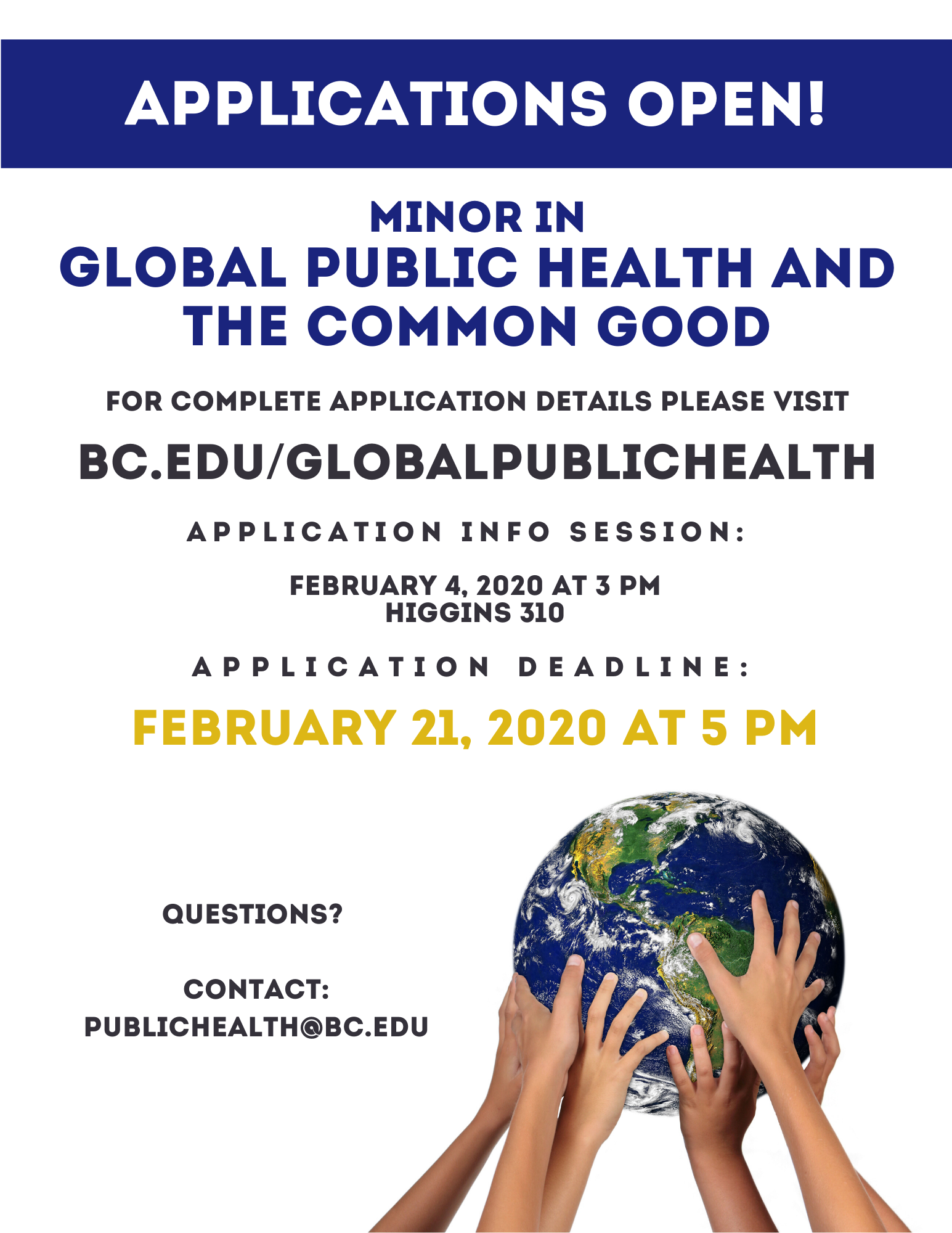
Now Accepting Minor Applications
Apply Now! to be admitted to the Global Public Health and the Common Good Minor for the 2020-2021 school year.
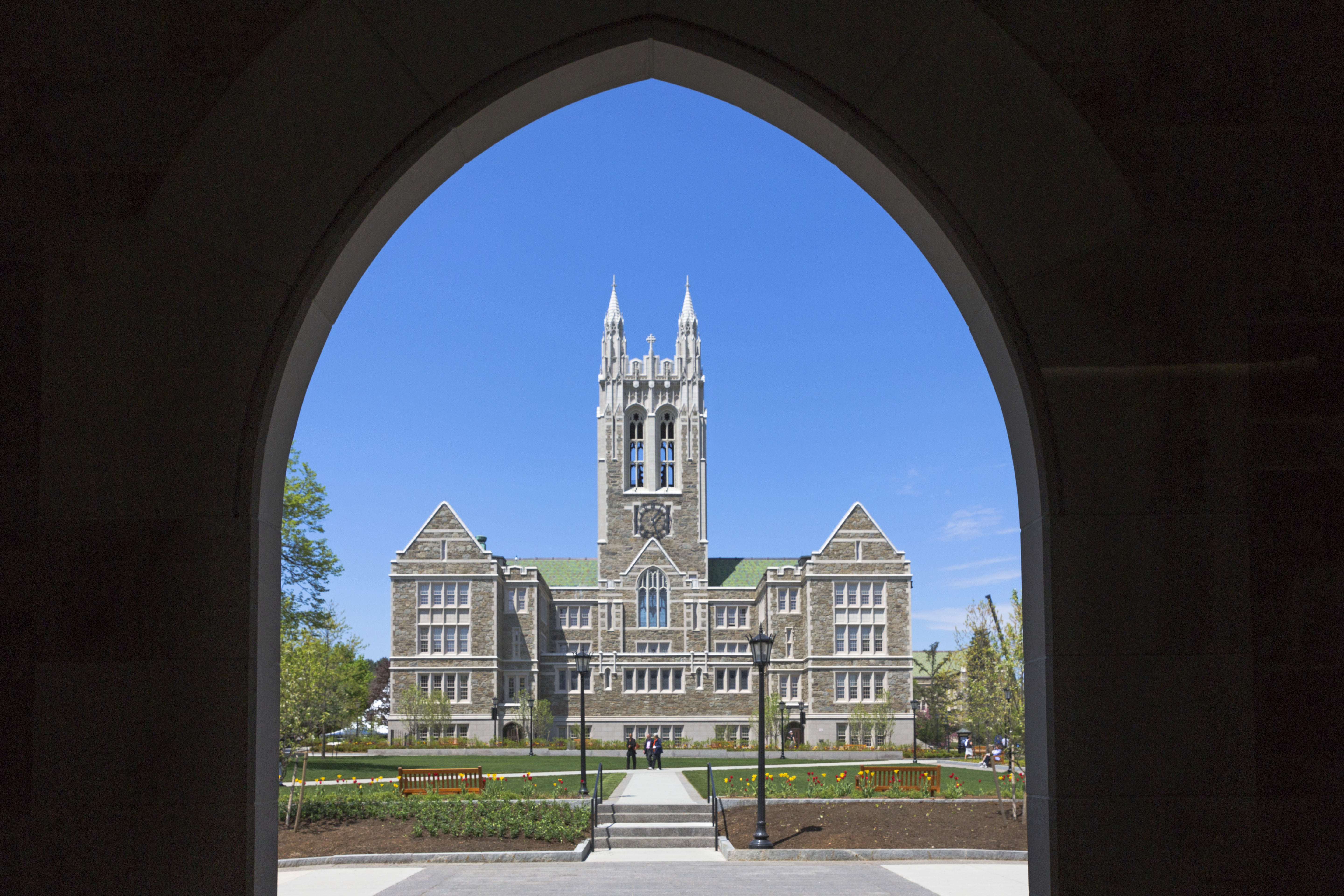
Welcome back! Spring 2020
Welcome back Eagles! As you plan for the new semester don't forget to use these campus resources to help support your health and wellbeing.

Register Now - Panel Event on Nov 1st
Join us for a panel discussion moderated by BC School of Social Work Associate Professor Summer Sherburne Hawkins on November 1st with Brendan Little Policy Director of Mayor’s Office of Recovery Services, for the City of Boston, Dr. Jessie Gaeta Chief Medical Officer at Boston Health Care for the Homeless and Dr. Scott Weiner Director, Brigham Comprehensive Opioid Response and Education (B-CORE) Program. Register Now!
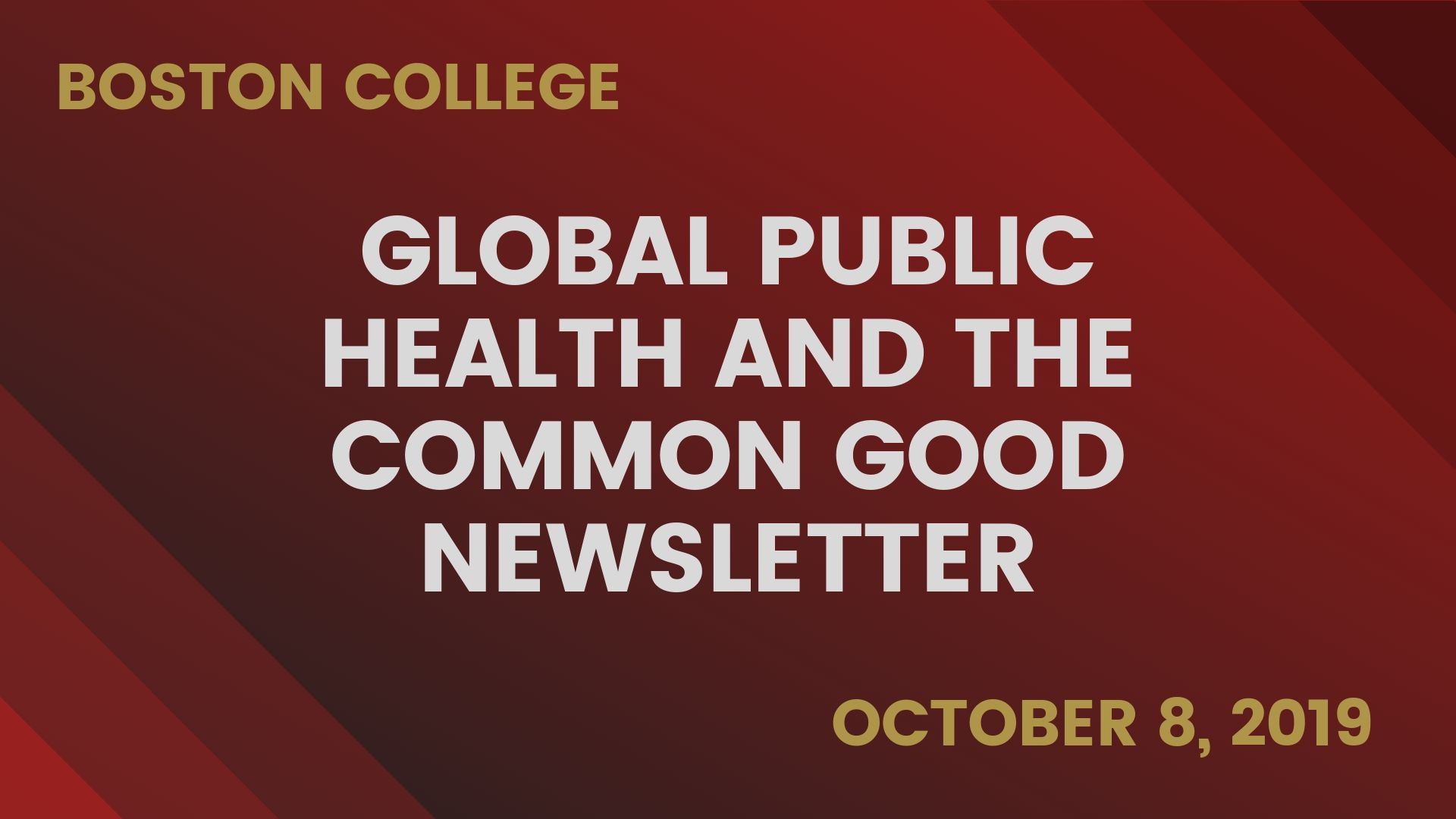
BC Global Public Health Newsletter
The latest edition of BC's Global Public Health Newsletter featuring events and announcements for October 8 - 21. Read it here
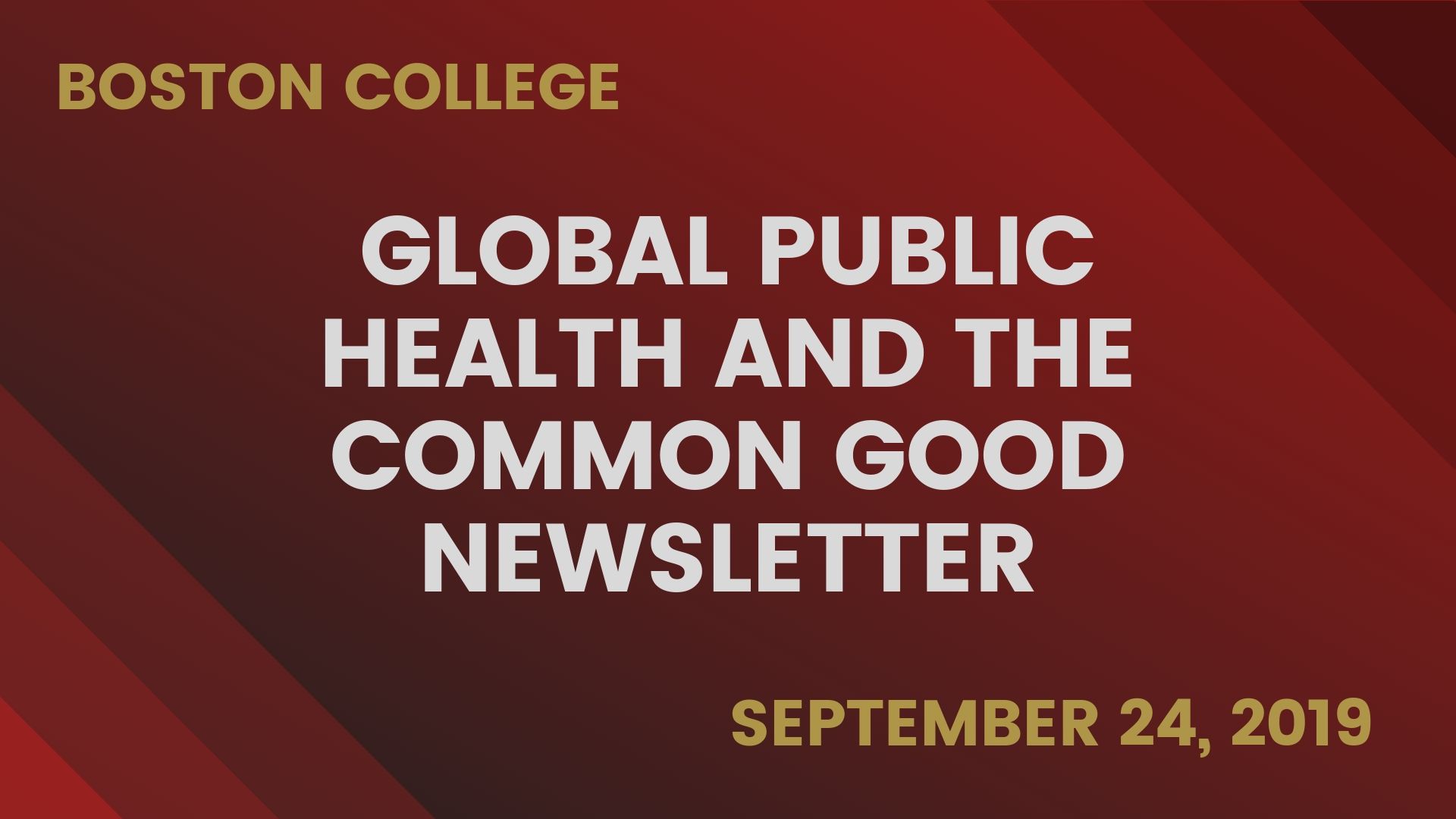
BC Global Public Health Newsletter
The latest edition of BC's Global Public Health Newsletter featuring events and announcements for September 24 - October 7 Read it here
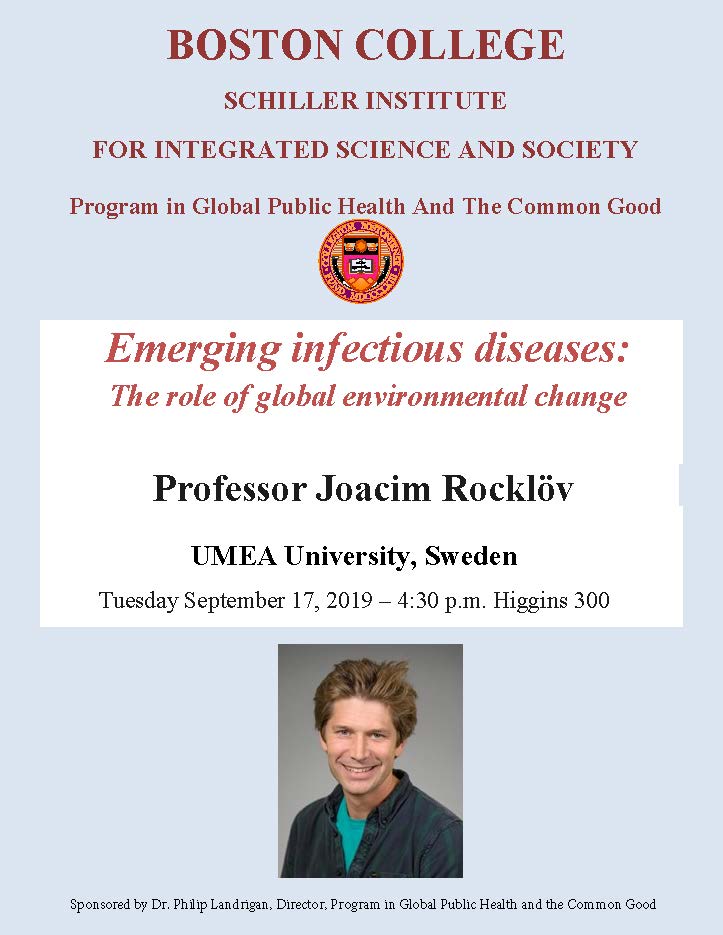
Emerging infectious diseases: The role of global environmental change
Please Join us for a talk by Professor Joacim Rocklov of UMEA University, Sweden on Tuesday, September 17, 2019
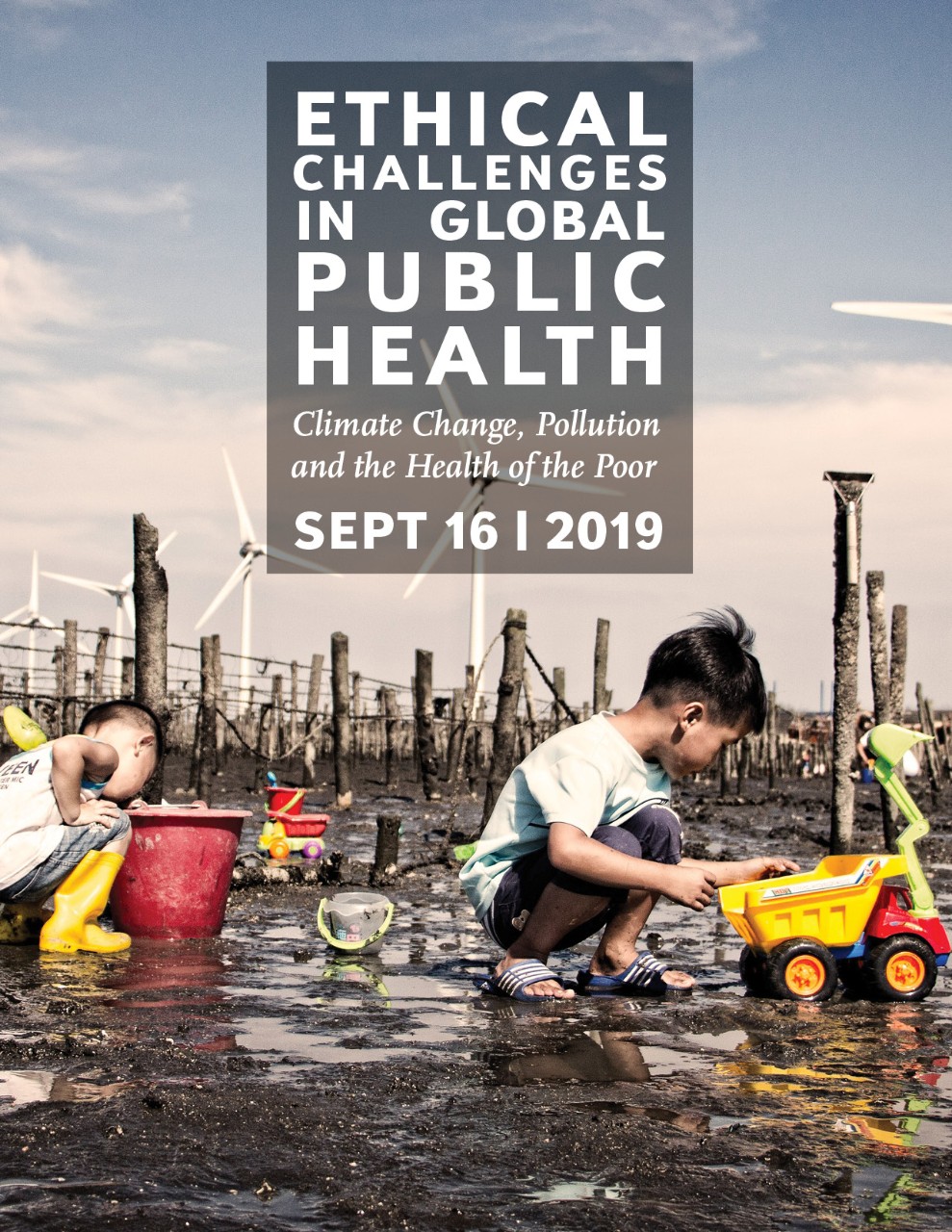
Global Public Health Conference at BC
A Conference on the Ethical Challenges in Global Public Health: Climate Change, Pollution, and the Health of the Poor will be held at Boston College on Monday, September 16, 2019. Learn More

Spotlight - The Growing Public Health Hazard of E-cigarettes
BC School of Social Work Associate Professor Summer Sherburne Hawkins hightlights the public health hazard of vaping and e-cigarettes Read More
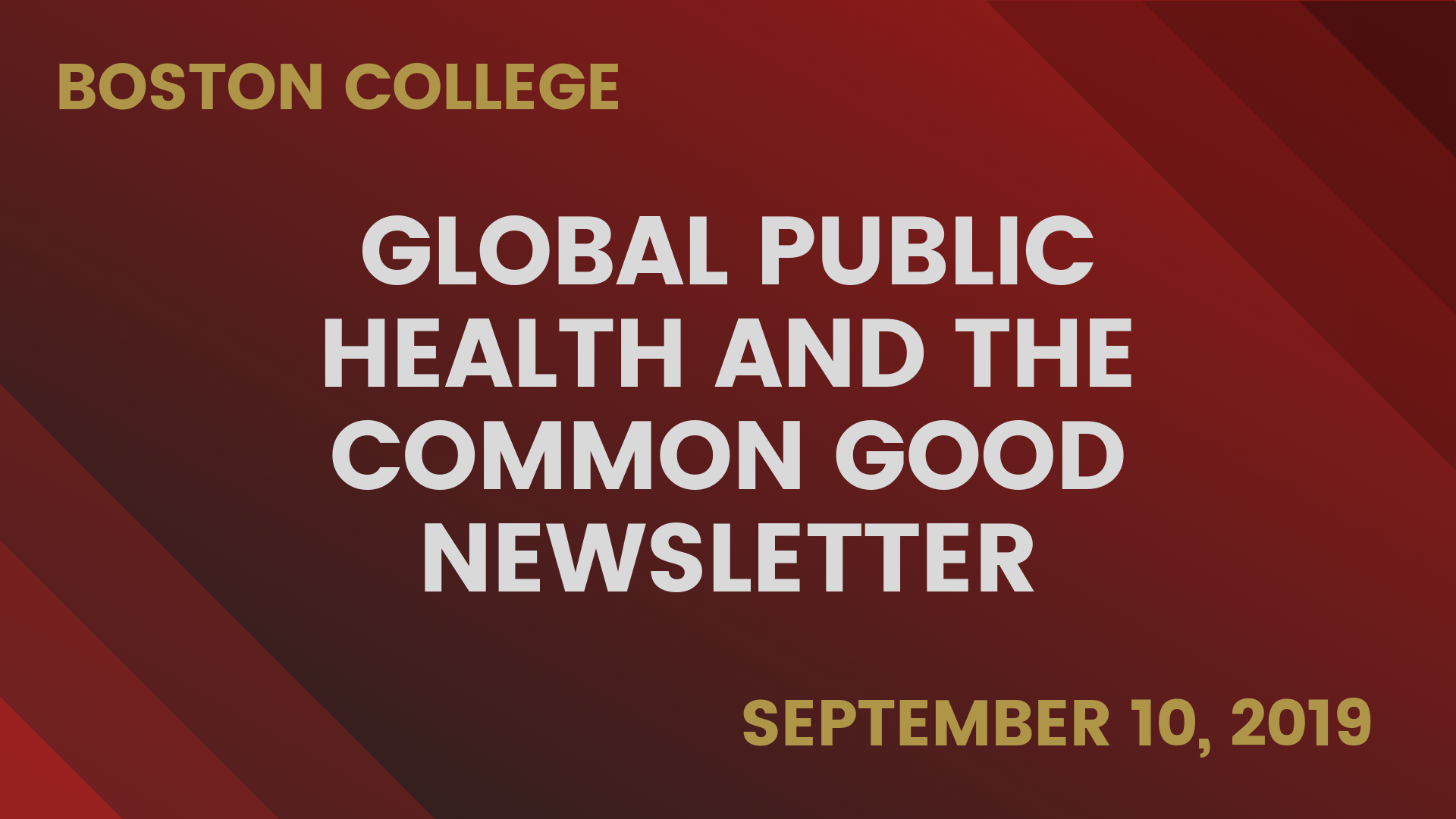
BC Global Public Health Newsletter
The latest edition of BC's Global Public Health Newsletter featuring events and announcements for September 10 - 23. Read it here
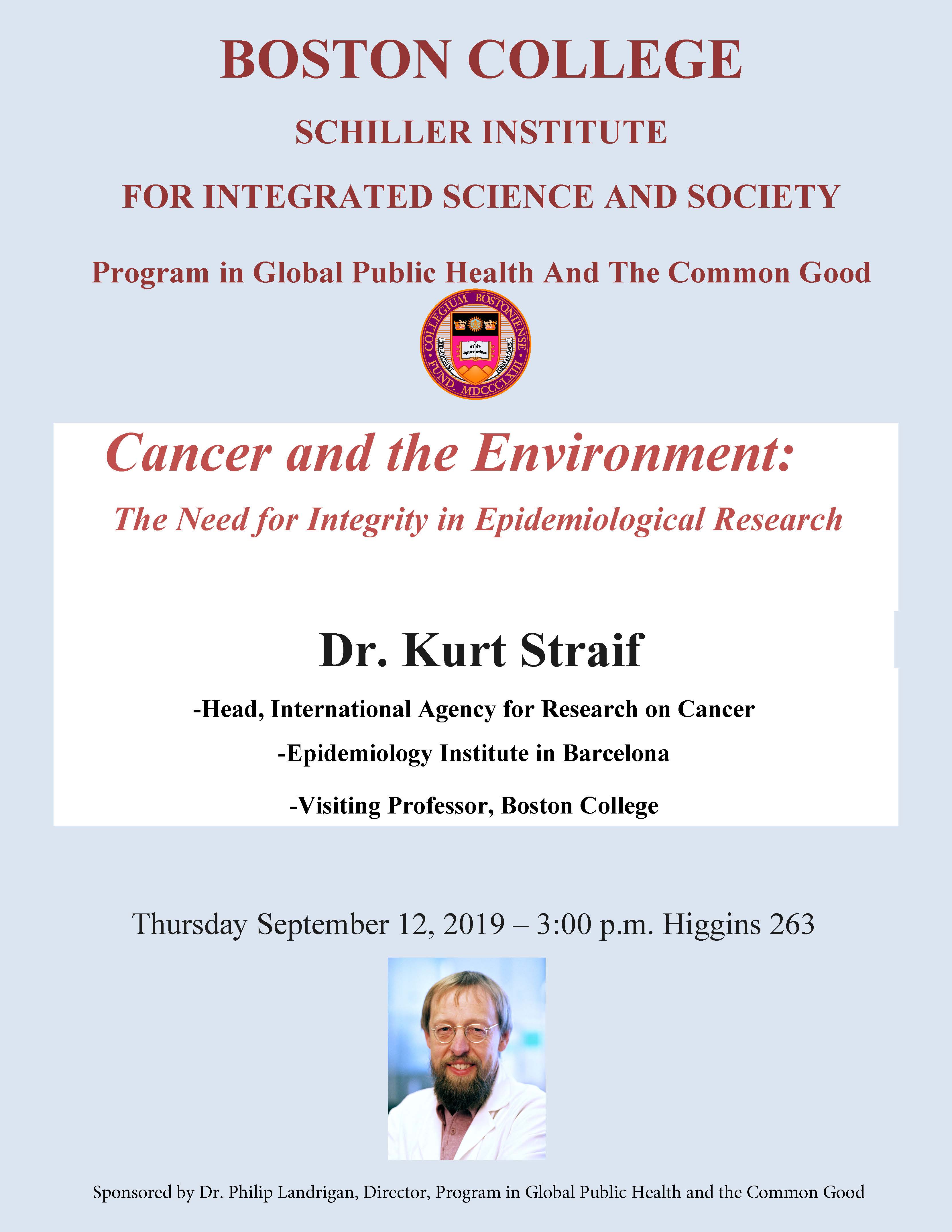
Cancer and the Environment: The Need for Integrity in Epidemiological Research
Please Join us for a talk by Boston College Visiting Professor Kurt Straif on Thursday, September 12, 2019
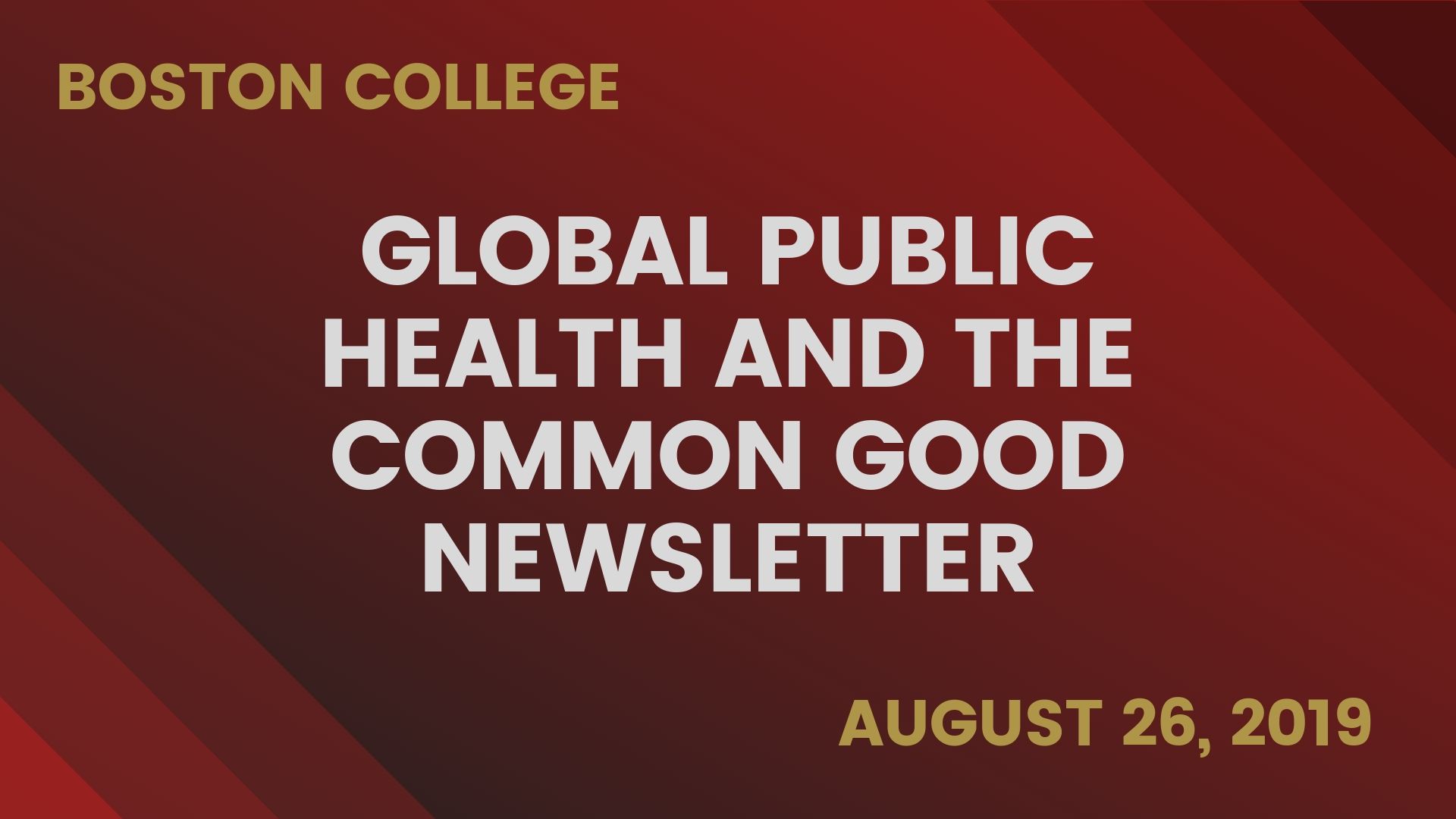
BC Global Public Health Newsletter
The latest edition of BC's Global Public Health Newsletter featuring events and announcements for August 26 -September 2. Read it here
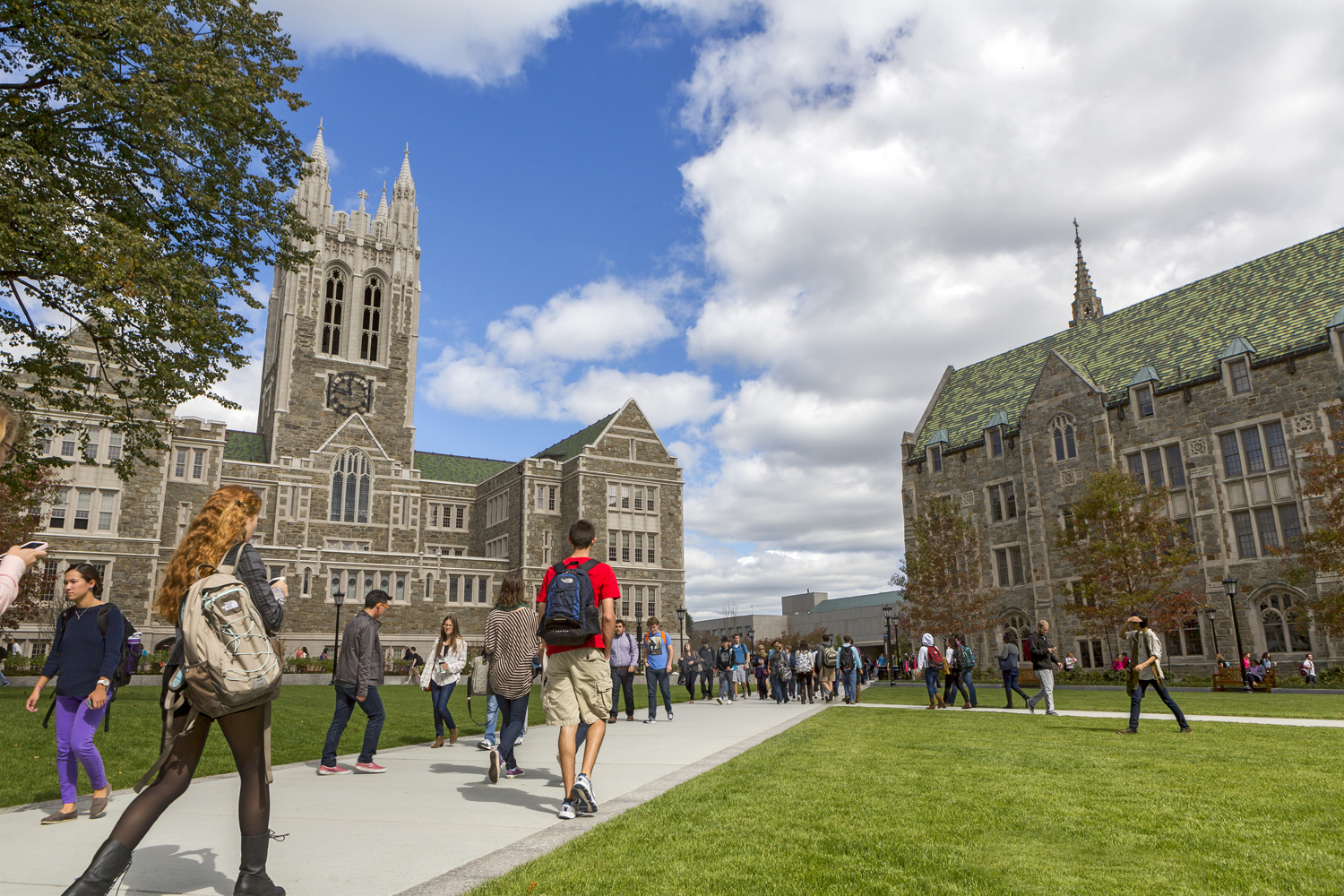
Welcome Back Students!
Fall 2019 is an exciting time for the Global Public Health and the Common Good Program. Read the Director's complete welcome address.
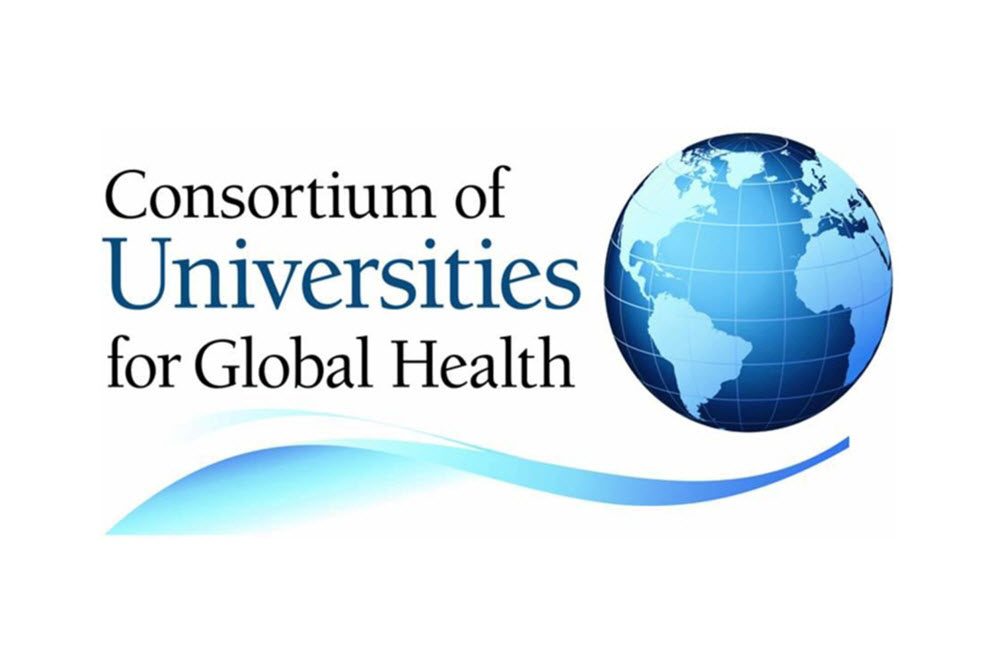
CUGH Bulletin: July 19, 2019
The latest edition of the CUGH's weekly newsletter for global health news and announcements Access Here.

Editorial: Social Justice and the Promotion of the Common Good in Medical Missions to Low-Resourced Countries
Boston College Michael P. Walsh Professor of Bioethics Andrea Vicini highlights the importance of critically examining medical missions to low-resourced countries in light of a bioethical focus in his latest editorial for the Annals of Global Health Read it here.

BC Magazine: Our Polluted Planet
Environmental contamination claims 9 million lives a year, and it’s going to get much worse. Boston College Magazine spoke to Global Public and the Common Good program director and acclaimed epidemiologist Philip Landrigan ’63 about taking on this global killer. Read More
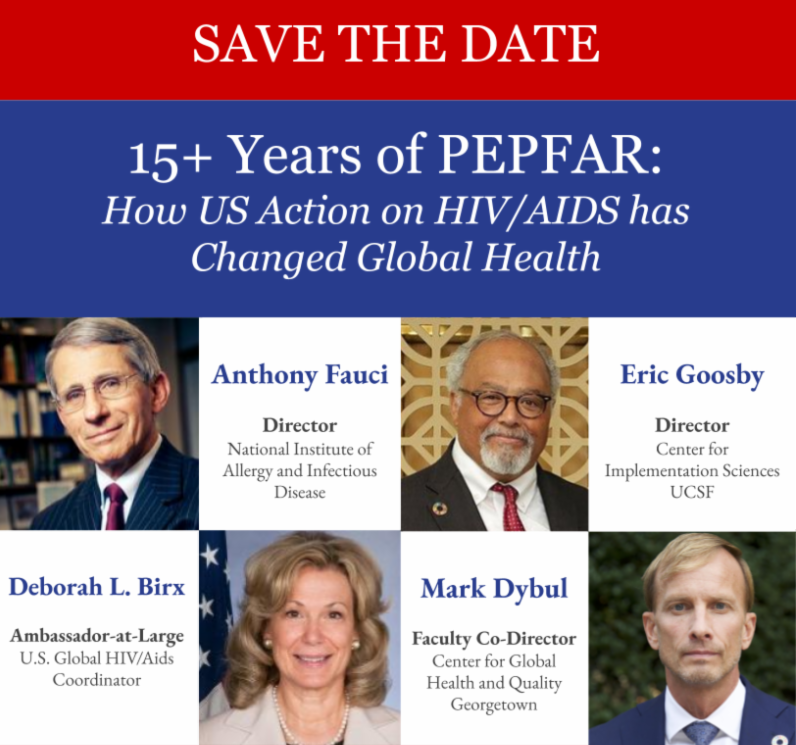
Save the Date - PEPFAR Symposium
Over the past 15+ years, the President’s Emergency Fund for Aids Relief 'PEPFAR' has become the largest global health program focused on a single disease in history. A one-day symposium on Monday, October 7, 2019 will convene the early architects of PEPFAR as well as experts and implementers currently leading the charge. Read More
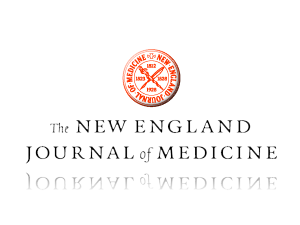
NEJM Perspective: A Most Reckless Proposal — A Plan to Continue Asbestos Use in the United States

Religious Exemptions for Vaccines
With the measles outbreak showing no signs of slowing, communities are taking steps to try to control future outbreaks by prohibiting religious exemptions from vaccines. Connell School of Nursing Assistant Professor Nadia Abuelezam discusses the continuing outbreak on NECN "The Take".

NEJM Perspective: Misrecognition and Critical Consciousness — An 18-Month-Old Boy with Pneumonia and Chronic Malnutrition

NEJM Perspective: The Case of Juliana v. U.S. — Children and the Health Burdens of Climate Change

NEJM Perspective: Combating EPA Rollbacks — Health Care’s Response to a Retreat on Climate
From the Center for Climate, Health, and the Global Environment (Harvard C-CHANGE), Harvard T.H. Chan School of Public Health and Boston Children’s Hospital Gina McCarthy, M.S., and Aaron Bernstein, M.D., M.P.H. share how and why health care systems are reacting to the EPA's recent rollback on regulations. Read More

Times Union Commentary: Pesticide ban can protect our children
New York could become the first state to end use of chlorpyrifos. Global Public Health Director Philip Landrigan explains why this pesticide ban is a long over due and a good sign for the future of our children. Read More
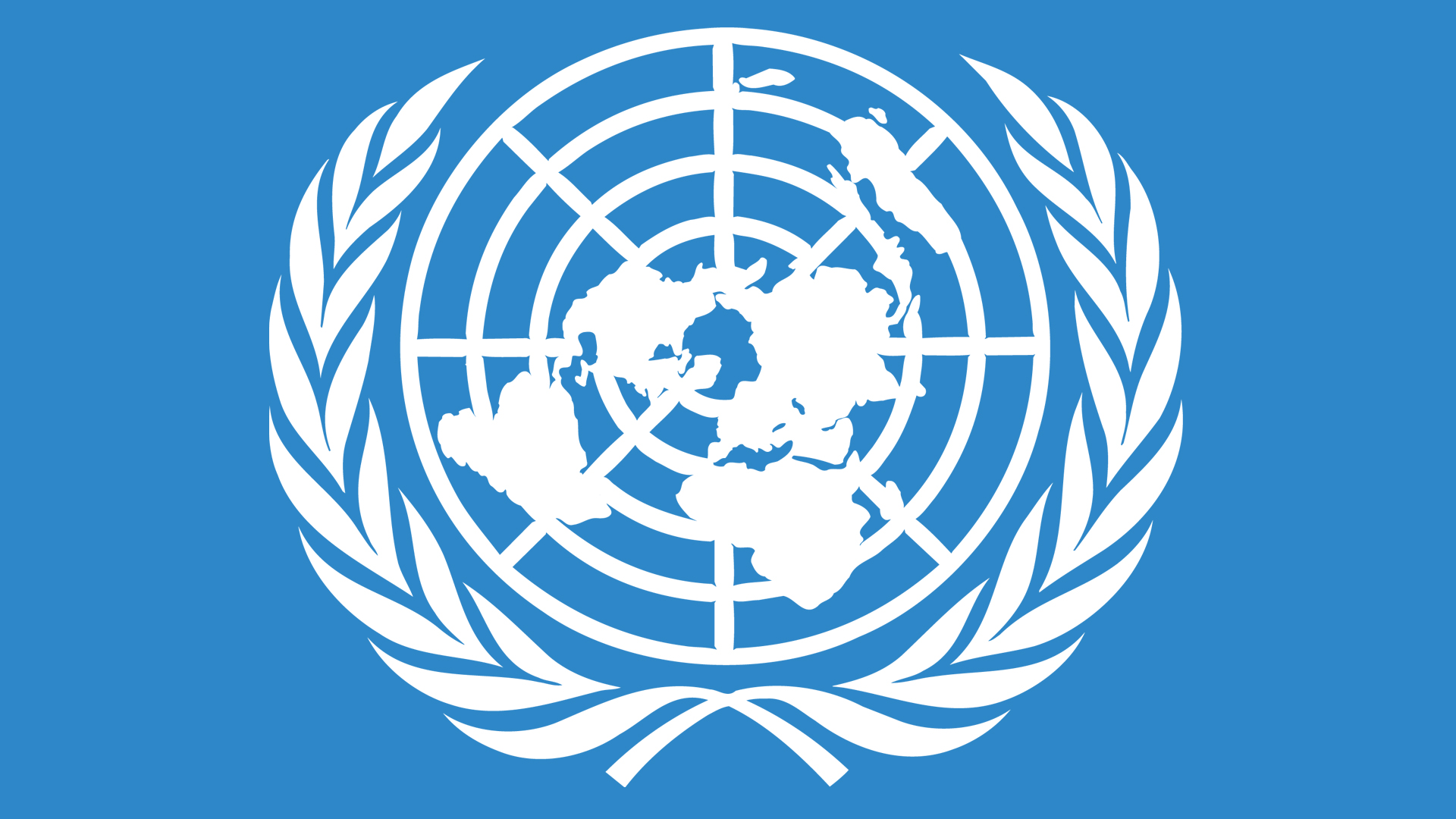
United Nations Statement on Air Pollution and Health
On June 29, 2019, Global Observatory on Pollution and Health Director Philip Landrigan participated in an international science-policy statement at the United Nations headquarters as part of an initiative on “Air Pollution and Health” relating to the UN Sustainable Development Goals. Read More
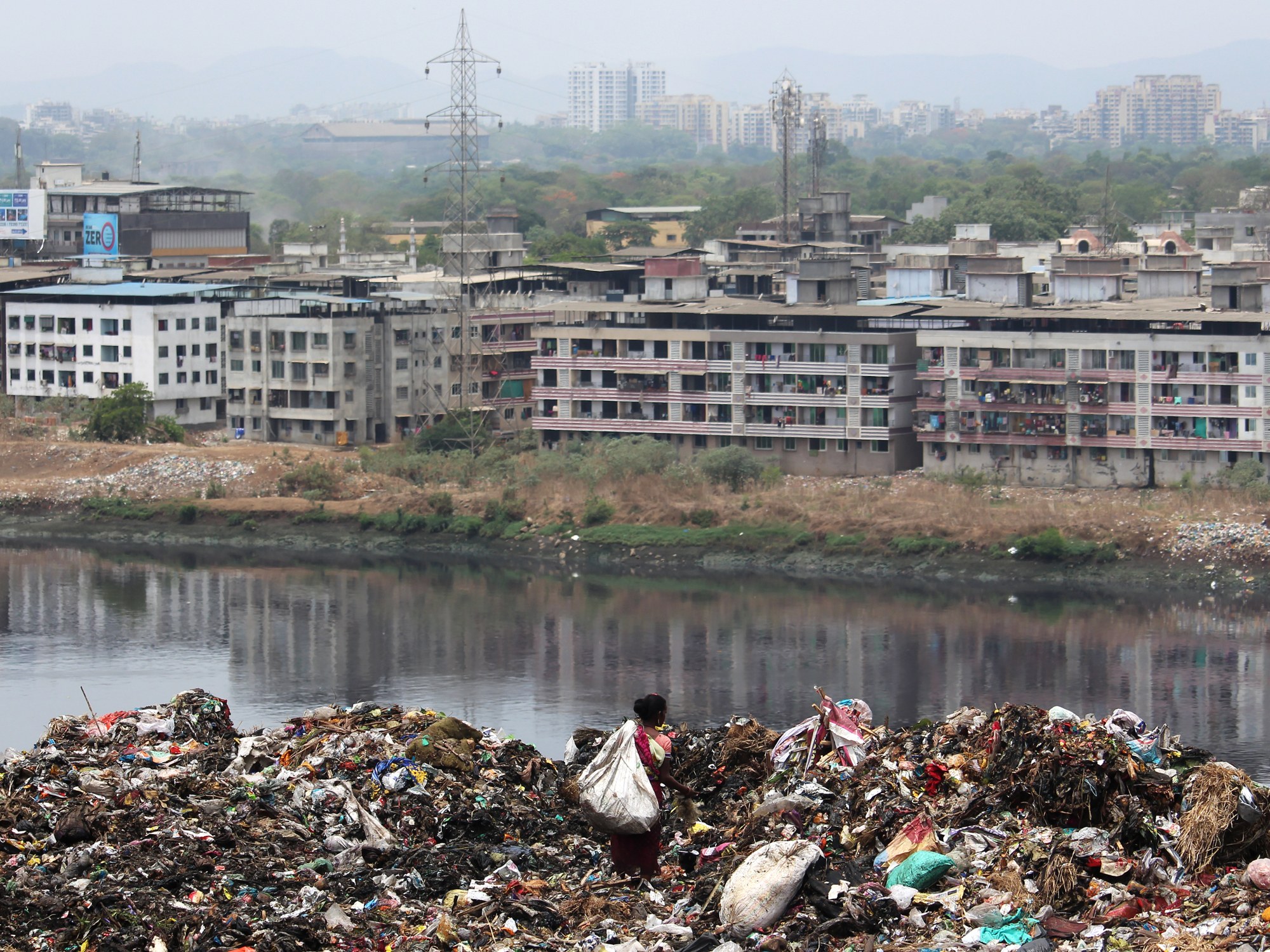
Wired Feature: A Global Pollution Observatory Hunts for Hidden Killers
Between productivity losses and health care, pollution costs some $5 trillion a year, more than 6 percent of global economic output. Wired Magazine spoke to Dr. Philip Landrigan about the first global assessment of pollution, The Lancet Commission on Pollution and Health, which was issued in October 2017. Read More

Special Collection Release | Annals of Global Health
The Annals of Global Health highlights a special collection of articles on Short Term Experiences in Global Health (STEGHs): Urgent Need for a Legal and Ethical Framework. Access it here

NY Times Opinion | Why Two Ex-Surgeons General Support the ‘Juliana 21’ Climate Lawsuit
Former Surgeon Generals of the United States Drs. Carmona and Satcher explain how young people, like the plaintiffs of the Juliana v. U.S., are uniquely vulnerable to the effects of global warming. Read More

Undermining the Science of Climate Change
In a letter to the editor of the NY Times, Boston College Law School Professor David Wirth offers glimmers of hope to the masses regarding Trump's Paris Accord follies. Read More

Testimony against recent EPA proposal
On May 21st, 2019 Dr. Philip Landrigan joined leading public health scientist and doctors to testify in opposition to the Environmental Protection Agency's proposed revision to Mercury and air toxin standards for power plants. Read More
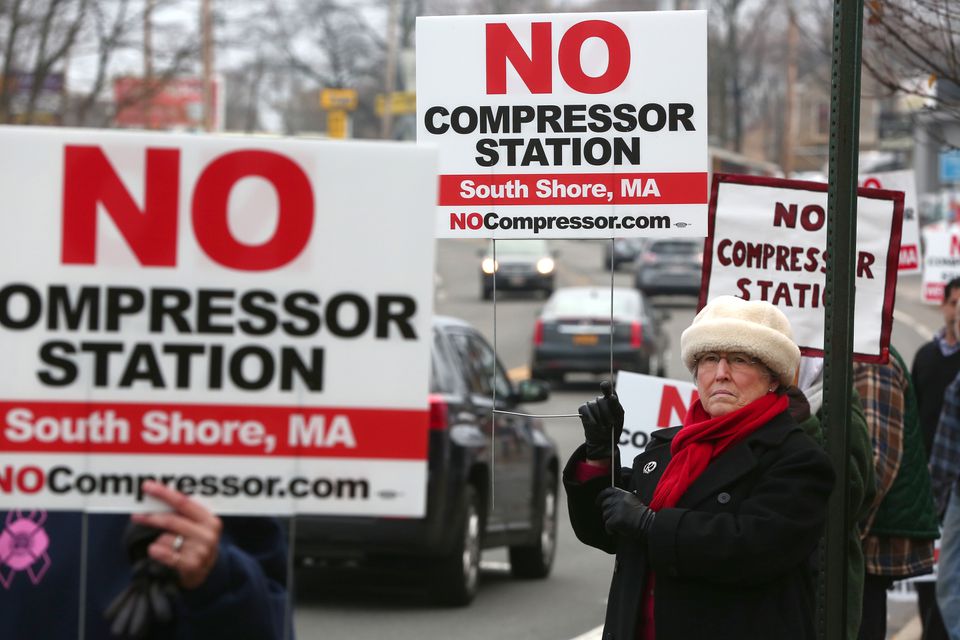
Opposition to the Weymouth Compressor Station
Boston College Global Public Health faculty have joined efforts of area residents, leading scientists and doctors, and environmental activists to oppose this project. Learn More
.jpg)
Save the Date
A Conference on the Ethical Challenges in Global Public Health: Climate Change, Pollution, and the Health of the Poor will be held at Boston College this Fall on September 16, 2019.

A Matter of Safety
A recent study led by Boston College School of Social Work Associate Professor Summer Sherburne Hawkins and Economics Department Chair Christopher F. Baum found that public schools located in states with stricter gun laws are safer, a link not previously uncovered Read More

Spotlight - Can a TV Show or Movie Cause a Change in Health Outcomes in the Population?
Connell School of Nursing Assistant Professor Nadia Abuelezam hightlights the impact that pop culture has on health outcomes in this week's newsletter. Read More

Spotlight - What is the most dangerous animal in the world?
Connell School of Nursing Assistant Professor Nadia Abuelezam shares public health innovations in combating mosquitoes and the spread of malaria in this week's newsletter. Read More
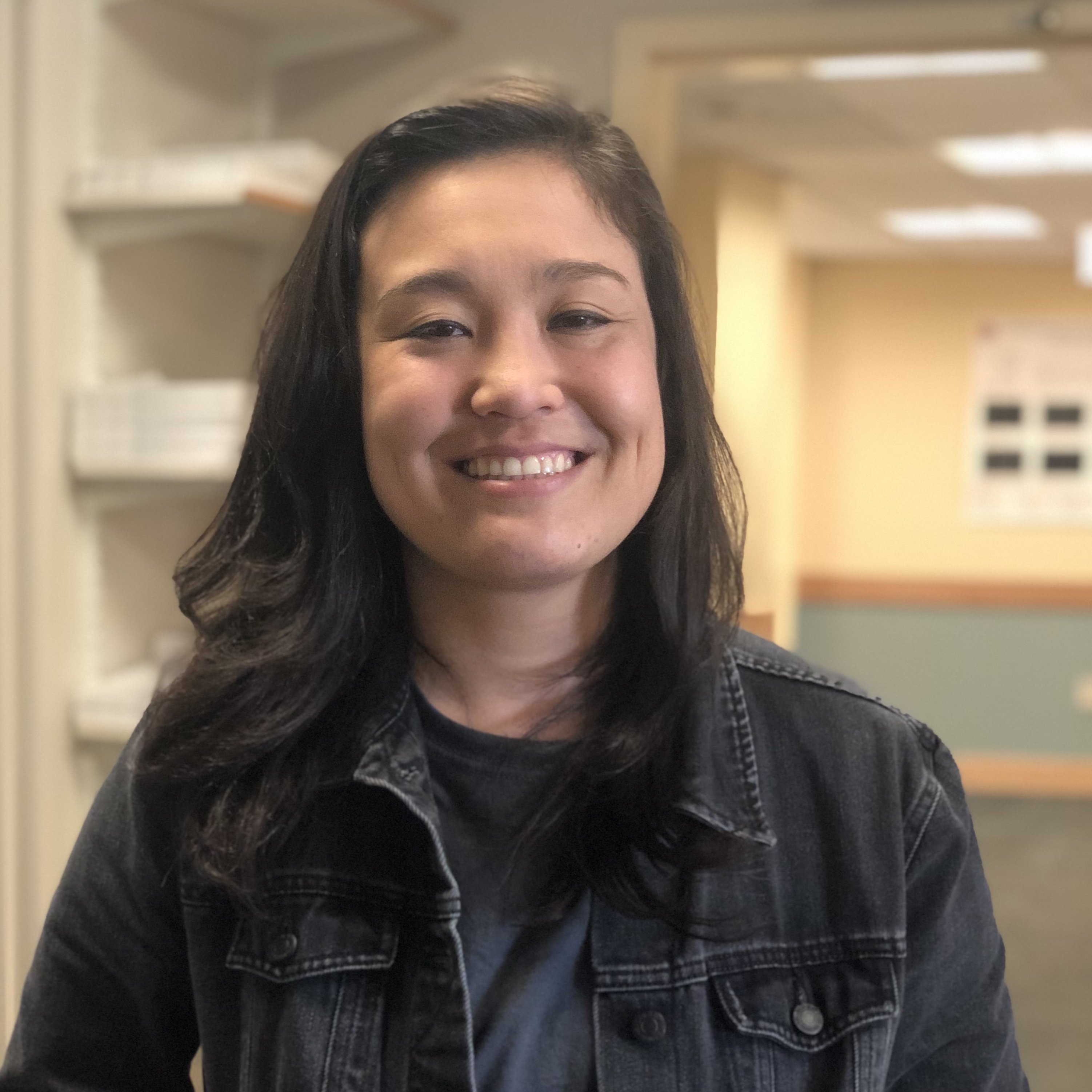
Spotlight - Samantha Fisher
Samantha is a data analyst for the Schiller Institute for Integrated Science and Society. Learn more about her experience.
.jpg)
Announcement: Global Public Health and the Common Good Minor
The Global Public Health and the Common Good program opens applications for a minor debuting in the fall of 2019.
Read full story on BC News
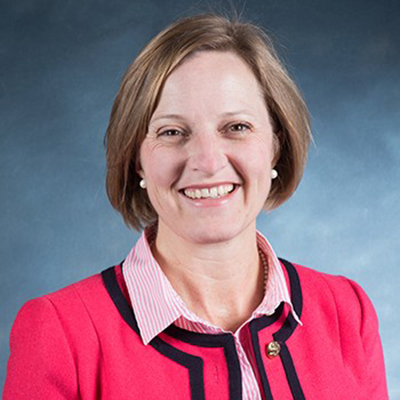
Spotlight - Tracy Regan
Dr. Regan, is an associate professor of the practice in the department of economics at Boston College. Learn more about her experience.

Spotlight - The Importance of Rest and Relaxation
In our last newsletter before spring break, Connell School of Nursing Assistant Professor Nadia Abuelezam reflects on the imporance of rest and relaxation to our health and professional well-being. Read More

Spotlight - Cassie Ryan
Dr. Ryan, is a clinical associate professor in the Connell School of Nursing at Boston College. Learn more about her experience.

Vision for global health
New program plans new undergraduate minor and major, plus an ambitious five-year research agenda. Read full story on BC News.

Spotlight - Recent Upsurge in Measles Cases in the United States
In this week's newsletter Connell School of Nursing Assistant Professor Nadia Abuelezam shares her thoughts on the recent surge in measels cases and the significance of vaccinations to public health. Read More

Spotlight -Mary Ashley Keene ('19)
Mary is a Boston College alumna who completed the 3-course emphasis in public health. Learn more about her experience.

Spotlight - Geetanjali Vij '20
Geetanjali is a mental health counseling master's students and a graduate assistant for the Global Public Health program. Learn more about her experience.
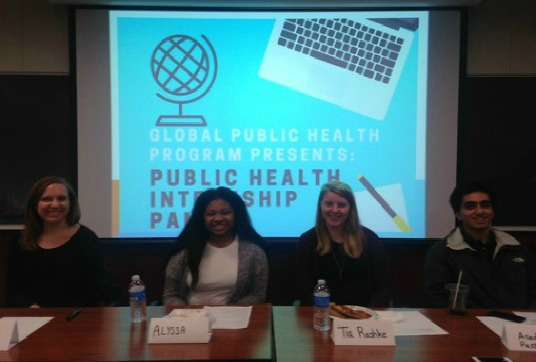
Public Health Summer Internship Panel
A panel of students help peers start planning for the summer during this career preparation gathering.
Spotlight - Racism, Hate Crimes and Public Health in America
In this week's newsletter Connell School of Nursing Assistant Professor Nadia Abuelezam highlights the importance of viewing racism as a public health issue. Read More

Spotlight - The Impact of Media Portrayal on Public Discourse and Public Health
In this week's newsletter Connell School of Nursing Assistant Professor Nadia Abuelezam highlights the impact that media portrayal has on public discourse and public health. Read More
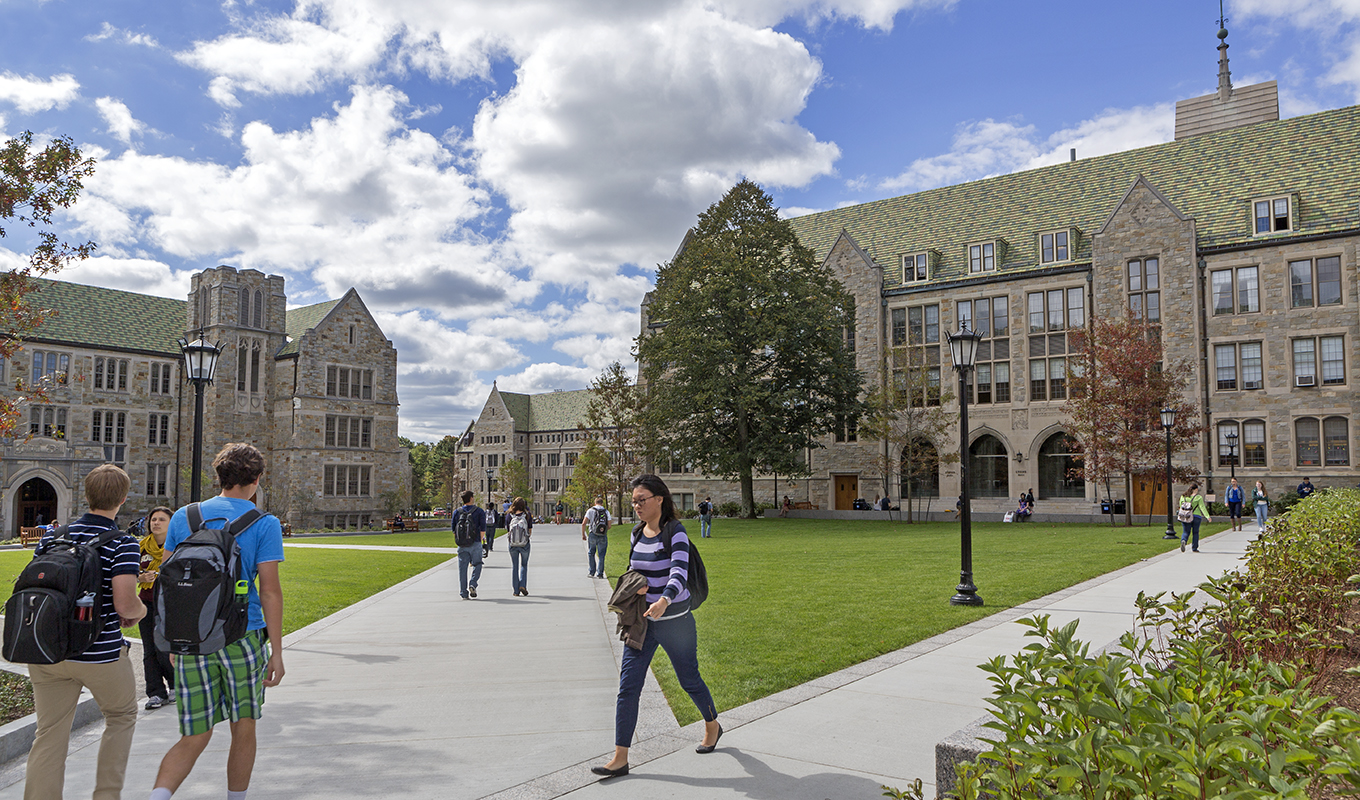
Spotlight - Welcome Back and Happy Voter Registration Day!
In the first newsletter of the academic year Connell School of Nursing Assistant Professor Nadia Abuelezam encourages students to register to vote and have their voice heard! Read More

Spotlight - Public Health and Our Responsibility to Vote
In this week's newsletter Connell School of Nursing Assistant Professor Nadia Abuelezam discusses why voting is a critical responsibility of those interested in imporving public health. Read More

Spotlight - Lily Appuligiese ('18)
Lily is a Boston College alumna currently pursuing her Master's in Public Health at Boston University. Learn more about her experience.

A Bad Move That Could End Up Exposing Kids to Chemicals
Without explaining why, the E.P.A. has sidelined its top children’s health advocate. Global Public Health and the Common Good Program director, Dr. Philip Landrigan co-authored a NY Times op-ed with Dr. Lynn Goldman, dean of the Milken INstitute of PUblic Health at George Washington University highlighting the significance of this move. Learn More
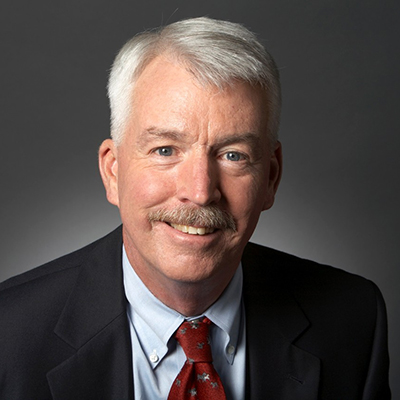
Spotlight - Phil Landrigan ('63)
Phil is the director of the Schiller Institute for Intergrated Science and Society and a BC alumnus. Learn more about his experience.
